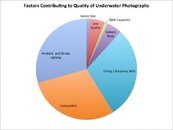trapper1981
Registered
OK Im relatively new to diving about 20 dives but I'm getting that bug for taking photos and video on some of my dives. My budget is 1000 I was planning on a GoPro but Ive heard stills are not great. I think stills would be more important for me as I would love to decorate my house in prints from photos i take. I am not into macro I would mainly be photographing sharks. My wife has a nikon d3200 i looked at the housing for it is 1500 and I would be a little nervous sharing a camera with her but I'm not totally against it. Sealife DC1400 was one Ive been looking at as well. any advice would be appreciated as it can get a little overwhelming.
---------- Post added August 10th, 2014 at 08:12 AM ----------
sorry should of added my wife is not a diver at all and loves taking pictures topside
---------- Post added August 10th, 2014 at 08:12 AM ----------
sorry should of added my wife is not a diver at all and loves taking pictures topside




